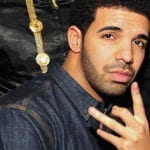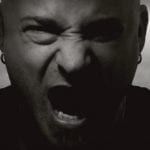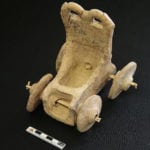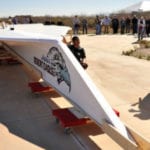 Weird Stuff
Weird Stuff  Weird Stuff
Weird Stuff  Mysteries
Mysteries 10 Tragic Disappearances and Deaths in Joshua Tree National Park
 History
History 10 Ways Childhood Really Sucked in the Old West
 Music
Music 10 Name Origins of Famous Bands from the 1990s
 Religion
Religion 10 Biggest Turnarounds by the Catholic Church
 Weird Stuff
Weird Stuff 10 Unbelievable Times Laws Had Unintended Consequences
 Humans
Humans Ten Historic Women Who Deserve Way More Credit Than They Got
 Movies and TV
Movies and TV 10 Films That Spawned Major Lawsuits
 History
History Ten Times Towns Were Wiped Off the Face of the Earth
 Creepy
Creepy 10 of the Most Disturbingly Haunted Public Houses in the UK
 Weird Stuff
Weird Stuff 10 Niche Subcultures That Are More Popular Than You Might Think
 Mysteries
Mysteries 10 Tragic Disappearances and Deaths in Joshua Tree National Park
 History
History 10 Ways Childhood Really Sucked in the Old West
Who's Behind Listverse?

Jamie Frater
Head Editor
Jamie founded Listverse due to an insatiable desire to share fascinating, obscure, and bizarre facts. He has been a guest speaker on numerous national radio and television stations and is a five time published author.
More About Us Music
Music 10 Name Origins of Famous Bands from the 1990s
 Religion
Religion 10 Biggest Turnarounds by the Catholic Church
 Weird Stuff
Weird Stuff 10 Unbelievable Times Laws Had Unintended Consequences
 Humans
Humans Ten Historic Women Who Deserve Way More Credit Than They Got
 Movies and TV
Movies and TV 10 Films That Spawned Major Lawsuits
 History
History Ten Times Towns Were Wiped Off the Face of the Earth
 Creepy
Creepy 10 of the Most Disturbingly Haunted Public Houses in the UK
10 Strange Original Versions Of Well-Known Songs
Songwriting is often a long process, involving numerous rewrites and chord changes before the desired product is completed. Occasionally, a song undergoes such drastic changes that it is virtually unrecognizable by the time it ends up on the album. Here are 10 songs that went through that process and turned into well-known classics.
10‘One After 909’
The Beatles
Let It Be was the last Beatles album released, but it was actually recorded before Abbey Road. The record sat on the shelves for over a year before its May 1970 release. The idea behind Let It Be was to get back to the original sound of the band—in fact, the album’s working title was Get Back.
Part of that effort involved digging up old recordings, and that’s when the band rediscovered “One After 909.” The band first recorded the song in March 1963, but it was actually one of the first songs that John Lennon and Paul McCartney wrote together and may have been written as early as 1957. The song’s sound was exactly what they were looking for, so it was redone for Let It Be in 1969. If you compare the video of the early recording above to this one from the finished album, you can hear that while few changes were made, the maturation of The Beatles over just six years made a world of difference.
9‘War Pigs’
Black Sabbath
Black Sabbath’s “War Pigs” is known for its powerful riff and strong lyrics that are clearly about Vietnam. Originally, though, the lyrics were quite a bit different, containing much more of Sabbath’s trademark evil. It was actually called “Walpurgis,” a German word for an occult celebration that was said to occur every year on the last evening of April. Songwriter Geezer Butler’s original lyrics, which simply described the witch party, had seemingly nothing to do with war.
Black Sabbath began playing the song live in 1968 with these lyrics, which were often improvised by Ozzy Osborne. The band decided to revamp the song in 1970, when “someone” near the band—it’s not clear who—became apprehensive about including the occult anthem on a major label release. The band overhauled the lyrics, moving away from the spooky witch theme and toward a spooky war theme. The album version that we all know and love only contains passing references to the witch festival.
8‘Do The Monkey’
The Wiggles
This world famous children’s band is the most successful Australian act of all time. They earned over $28 million in 2012, a year when you probably didn’t think The Wiggles were even around anymore. They continue to perform for kids worldwide with a new lineup of younger performers, but the original Wiggles had some serious musical chops.
Prior to entertaining kids, Jeff Fatt and Anthony Field were in a true rock band bearing the un-Wiggly name The Cockroaches. Many of the songs they performed with this band were reworked as children’s songs for The Wiggles, including one of the group’s best-known songs, a harmless little number called “Do the Monkey.” It was originally a much more rocking song, first appearing on The Cockroaches’ 1994 album St. Patrick’s Day 10am.
7‘Billie Jean’
Michael Jackson
It’s hard to believe that the song that made Michael Jackson the “King of Pop” barely made its way onto Thriller, but producer Quincy Jones was dead set against it. He hated everything about the song, from its 29-second intro to its bass line to even its title, which Jones thought people would mislead listeners into thinking the song was about tennis player Billie Jean King. Jackson had to fight to get the song on the album.
After much debate and a few minor lyrics changes, Jackson won, to a degree. He requested a co-producer credit on the song, since the final version wasn’t much different from the one he cut in his home studio. Jones refused, and Jackson actually walked out on the recording session for a few days. In the end, he had to settle for a “vocal, rhythm, and synthesizer arrangement” credit.
6‘Baba O’Riley’
The Who
The lead track from The Who’s 1971 album Who’s Next, arguably their best-known song despite being often mistakenly called “Teenage Wasteland,” had a very different beginning. It was originally intended to be included in a futuristic sci-fi rock opera called Lifehouse that Pete Townshend was writing as a follow-up to The Who’s wildly successful Tommy. He actually had the entire project mapped out and ready to be recorded until Universal backed out on its promise to fund the filming.
Some of the songs written for Lifehouse were repurposed for Who’s Next, including “Baba O’Riley.” Townshend always regretted the collapse of the Lifehouse project, and in December 1999, he performed the opera as a radio play on BBC. As on the original Lifehouse demo, Townshend sang lead on “Baba O’Riley.”
5‘Satellite’
Dave Matthews Band
Dave Matthews Band has been around since 1991, and as the top touring act of the 2000s in the US, they continue to play for packed houses every night. Even the most obscure Dave Matthews Band song becomes a singalong in concert, but one of their best-known songs underwent a vast lyrical change in its infancy that would trip up even hardcore fans.
“Satellite” was the third single off their major label debut album Under The Table and Dreaming. Dave Matthews told MTV that he wrote the song for his mother, but originally, it was written for a girlfriend. Its first incarnation, called “After Her,” was a straightforward love song with the same melody as “Satellite” but vastly different lyrics. The only part of the original that remains lyrically is the bridge, which explains why a song about satellites has a bridge about seasons and rebirth.
4‘Beth’
Kiss
“Beth” is a power ballad from a time when no one did power ballads, and it came from the most unexpected source, makeup-wearing and fire-breathing Kiss. The double A-side single that also contained “Detroit Rock City” shot to No. 7 on US charts, making it the highest-charting Kiss song ever. But Beth wasn’t originally a Kiss song, and it wasn’t even about Beth.
The song was written in 1971 for Kiss drummer Peter Criss’s former band, Chelsea. Criss and Stan Penridge originally called the song “Beck” in honor of guitarist Mike Brand’s wife, Becky, who constantly interrupted their rehearsals with nagging phone calls to her husband. Five years later, Criss brought the song into the Destroyer sessions to give it another go. Gene Simmons initially objected to the song’s inclusion on the album, but he was quick to take credit for changing the name from “Beck” to “Beth” once it was a hit. The original sounds remarkably similar to the Kiss version, with only a few lyrical changes and a dearth of bongos.
3‘Don’t You Want Me’
The Human League
The Human League burst onto the scene with this No. 1 hit in 1981. Scottish football fans put the song back on the UK charts in 2014 by turning the chorus into a chant for player Peter Pawlett. That’s pretty good for a song that barely made the album, and only then as a throwaway fourth single.
Considering its first inception, it’s easy to see why the song wasn’t beloved. Originally, lead singer Phillip Oakley conceived the song as a one-sided story with a backing track that only the Mario Bros. could love. Even after the song was reworked into the classic it is today, everyone still hated it. After A&R executive Simon Draper declared it a guaranteed hit, it was thrown on Dare as the last track and reluctantly released as a single. Now, it’s a defining sound of the 1980s.
2‘Under Pressure’
Queen
Vanilla Ice’s entire career was launched on the joint venture of Queen and David Bowie, but the song almost never happened. When Bowie joined Queen in the studio in 1981 to provide vocals on a track, it wasn’t for “Under Pressure” but a song called “Cool Cat.” Ultimately, those backing vocals were removed, and Bowie decided to help out on a track called “Feel Like.”
Bowie completely transformed the stagnating song, claiming to have written the bulk of its lyrics. Even with these changes, including the iconic bass line that is attributed to Bowie’s genius, Queen was initially unhappy with the final product, and Bowie didn’t even want it released as a single. Cooler profit-seekers prevailed, and “Under Pressure” became the lead single from Hot Space and a No. 1 hit on the UK singles chart.
1‘Jealous Guy’
John Lennon
The Beatles’ self-titled album, most commonly known as “The White Album,” was essentially a Frankenstein’s monster composed of odds and ends of the four members’ solo projects. One of John Lennon’s contributions, “Child of Nature,” was unwittingly written about the same subject—a lecture by the Maharishi Mahesh Yogi—as Paul McCartney’s “Mother Nature’s Son.” It was decided that McCartney’s song would be included on the album, and Lennon’s was scrapped. The band revisited Lennon’s song during the Let It Be sessions, but it fell by the wayside once more.
The song eventually found a home, albeit in a vastly different form, as “Jealous Guy” on Lennon’s 1971 solo album Imagine. By changing only the lyrics, the song went from a meditation on spirituality to a bittersweet romantic apology. Despite its popularity, “Jealous Guy” wasn’t released as a single until 1985, after several covers of the song became successful. The most well-known cover was released by Roxy Music in 1981 as a tribute to Lennon after his murder.
Jake wrote a trivia ebook filled with the same kind of crazy stuff you just read in this list. You can follow him on Twitter for more useless facts.








